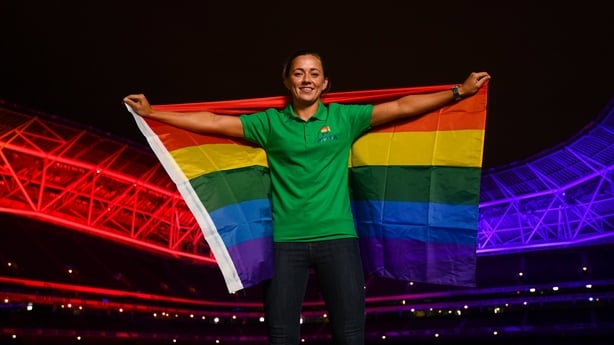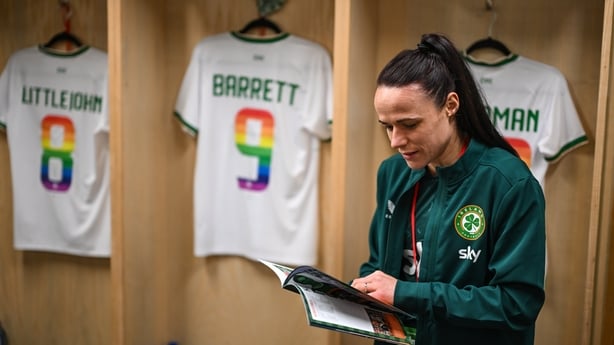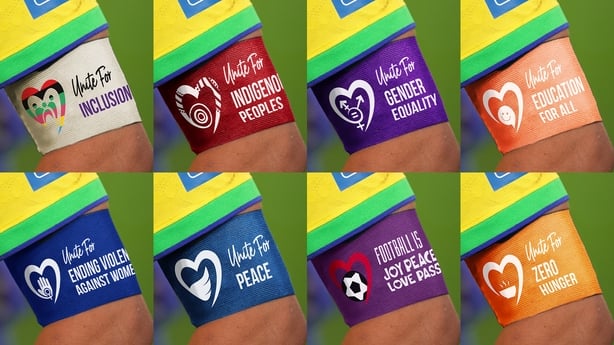Republic of Ireland captain Katie McCabe will not be permitted by FIFA to wear the OneLove armband in matches at the World Cup this summer.
The global governing body has announced plans to highlight a number of social issues and causes throughout the tournament in Australia and New Zealand.
Captains will be able to wear armbands corresponding to the cause being highlighted in each round of matches, or wear an armband in support of one cause for the entire tournament.
The FAI had requested permission for McCabe to wear either the OneLove or a rainbow armband several months ago, but she will now not be permitted to do so.
The Irish squad features several LGBT players, including McCabe, and they have been very active in campaigning for gay rights.

Most recently they wore rainbow-coloured numbers for the Zambia friendly in Tallaght, but many players have openly discussed their sexuality and spoken out on issues, which means this FIFA ruling will be a disappointment to Vera Pauw and her squad.
FIFA has consulted with national associations and players over its plans in a bid to avoid a repeat of the row over OneLove armbands which dominated the opening week of the men’s World Cup in Qatar last year.
There, captains of the nations involved in the OneLove campaign, including England and Wales, were threatened with sporting sanctions starting at a yellow card if the bands were worn, because they would have been a breach of FIFA equipment regulations. The bands were seen as a potent symbol of tolerance in a country where same-sex relationships are criminalised.

It is understood teams can promote other causes at team training camps if they choose to, but wearing the OneLove band, or any other unapproved band, at a match would trigger sanctions.
The colours of FIFA's 'unite for inclusion’ band are not those of the rainbow or LGBT pride flag, instead, they symbolise race and heritage (red/black/green) and all gender identities and sexual orientations (pink/yellow/blue).
The choices for the colour combinations were inspired by the Pan-African flag and the pansexual flag respectively.
Alongside inclusion, the other causes being highlighted are 'unite for indigenous peoples', 'unite for gender equality', 'unite for peace', 'unite for education for all', 'unite for zero hunger', 'unite for ending violence against women' and 'football is joy, peace, love, hope and passion'.

Team captains will also have the option to wear a 'football unites the world' armband for the entire tournament, if they do not wish to choose a single cause or support different causes round by round.
FIFA president Gianni Infantino said: "Football unites the world and our global events, such as the FIFA Women’s World Cup, have a unique power to bring people together and provide joy, excitement and passion.
"But football does even more than that – it can shine the spotlight on very important causes in our society. After some very open talks with stakeholders, including member associations and players, we have decided to highlight a series of social causes – from inclusion to gender equality, from peace to ending hunger, from education to tackling domestic violence – during all 64 matches at the FIFA Women’s World Cup."
World players’ union FIFPRO has also been contacted for comment.
Additional reporting: Mikey Stafford

